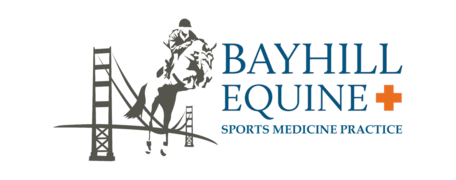Bayhill Equine
Category:

Deworming
Health Tips
While a very simple practice in theory, knowing when to deworm, with what product and how often can become a very perplexing matter.
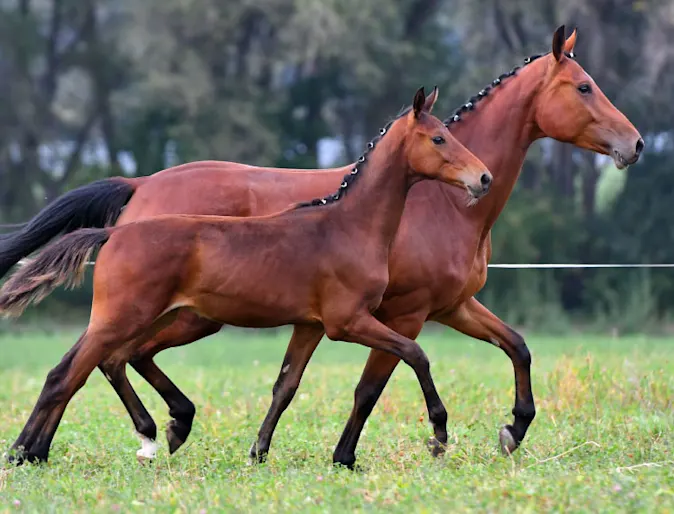
Pigeon Fever
Health Tips
At the present time there are several properties in the Woodside area that have recently had cases of “Pigeon Fever”. This article is a response to those asking for more information about the disease and what they can do.
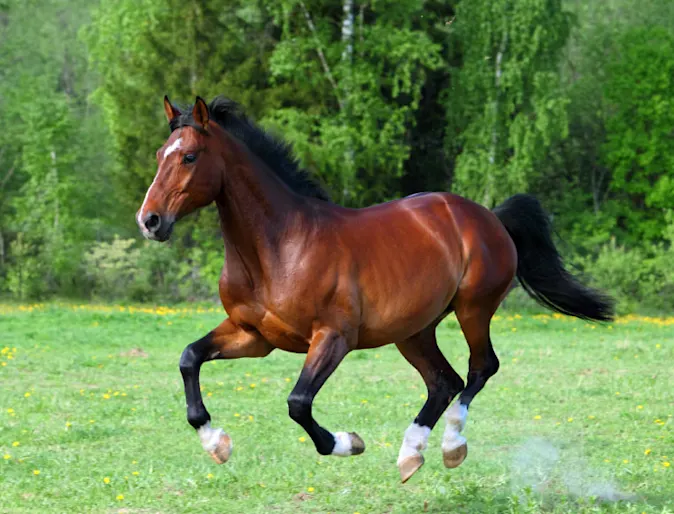
Caring for Adult Equine
Health Tips
Whether still in work or out to pasture, aged horses (those 15 years or older) may experience a variety of disease processes that go unnoticed by owners. This article will discuss several of these diseases and what your veterinary can do to help.

Equine Flu
Health Tips
Please see the article below regarding Equine Influenza. Bayhill Equine recommends bi-annual vaccination for Equine Influenza. The article discusses an intranasal vaccine. Bayhill uses a vaccine that can be administered intranasal or intramuscular.
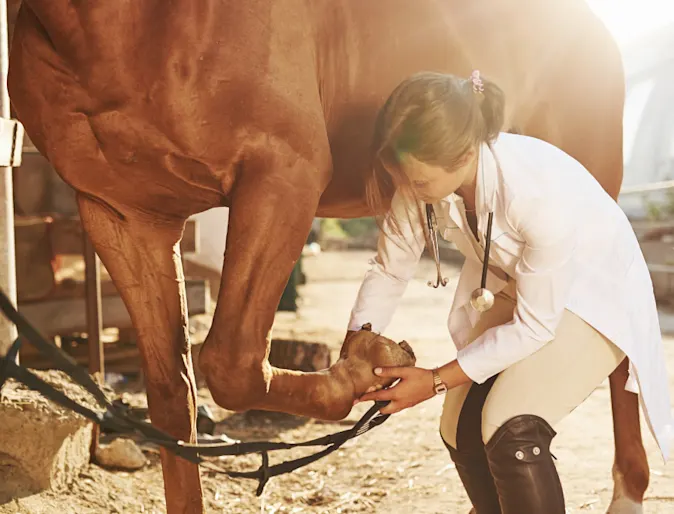
Pro-Stride; A New Twist on More Traditional Therapies
Health Tips
Patrons in the equine industry have been hearing of a new treatment on the market recently: Pro-Stride. Read more to find out how it works and how it can benefit your horse.
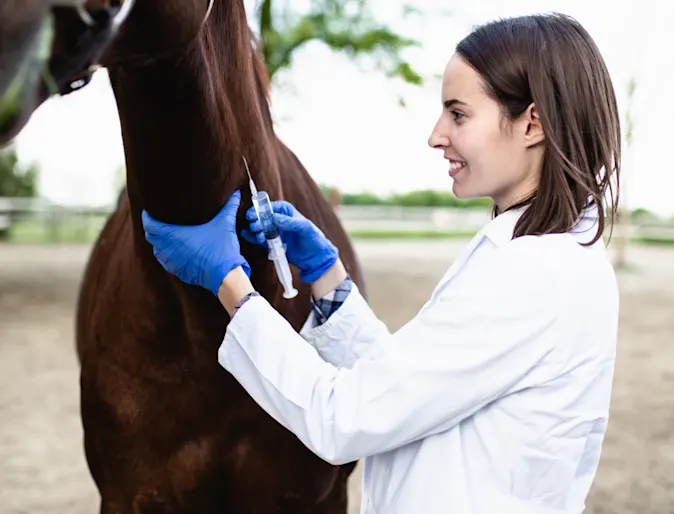
Vaccine Recommendation Changes
Health Tips
This schedule (along with the changes described below) are for previously vaccinated adult horses and is based upon the American Association of Equine Practitioner’s (AAEP) “Core Vaccine Recommendations.”
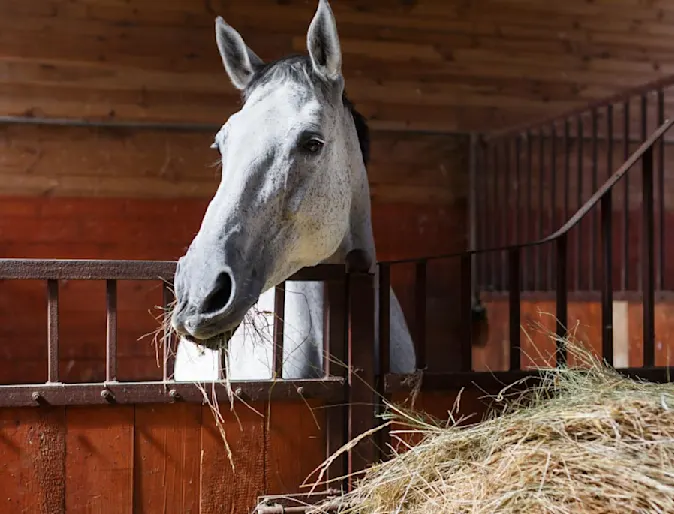
10 Tips for Choosing the Best Hay for Your Horse
AAEP Publication Articles
High-quality hay can be an important source of essential nutrients in your horse’s diet. For optimum health, nutritionists recommend that at least half a horse's diet should be roughage such as hay.
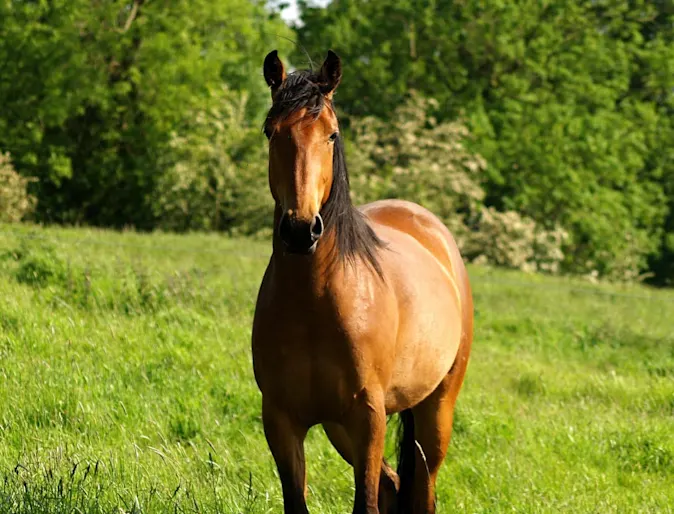
10 Tips for Fighting Fungus Infested Fescue
AAEP Publication Articles
There are some significant health risks associated with horses eating endophyte fungus-infected tall fescue. Some of these problems can be minimized with careful management of horses and pastures.
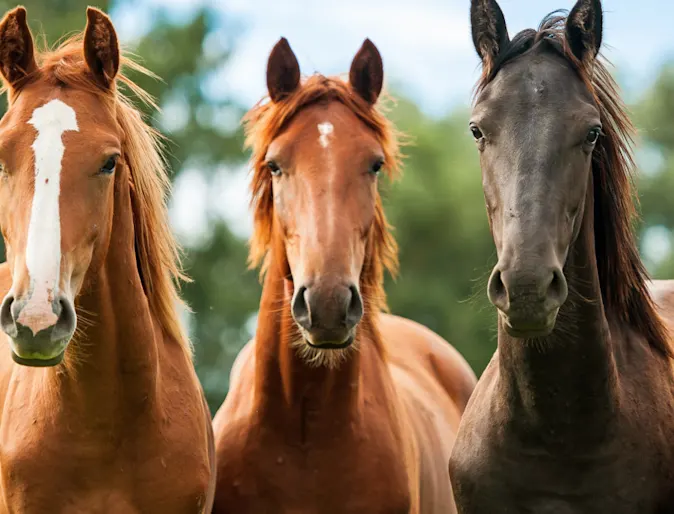
10 Tips for Preventing Equine Colic
AAEP Publication Articles
The number one killer of horses is colic. Colic is not a disease, but rather a combination of signs that alert us to abdominal pain in the horse. Colic can range from mild to severe, but it should never be ignored.
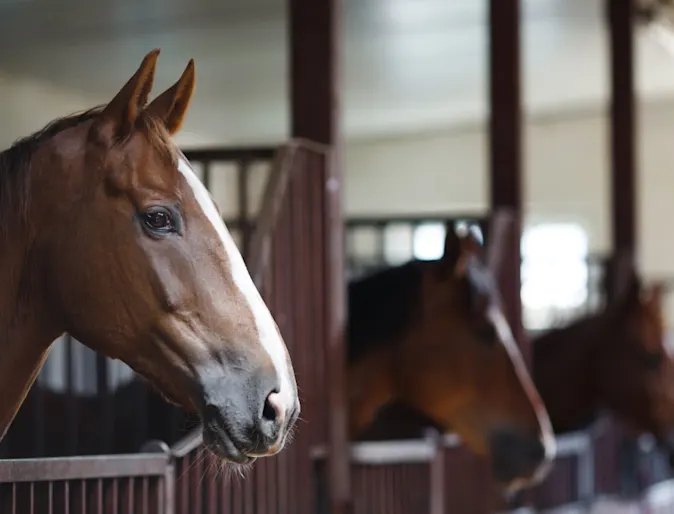
10 Tips for Reducing Your Horse's West Nile Risk
AAEP Publication Articles
While many horses exposed to West Nile Virus experience no signs of illness, the virus can cause inflammation of the brain and spinal cord. In some cases, especially in older horses, WNV can be serious and sometimes fatal.
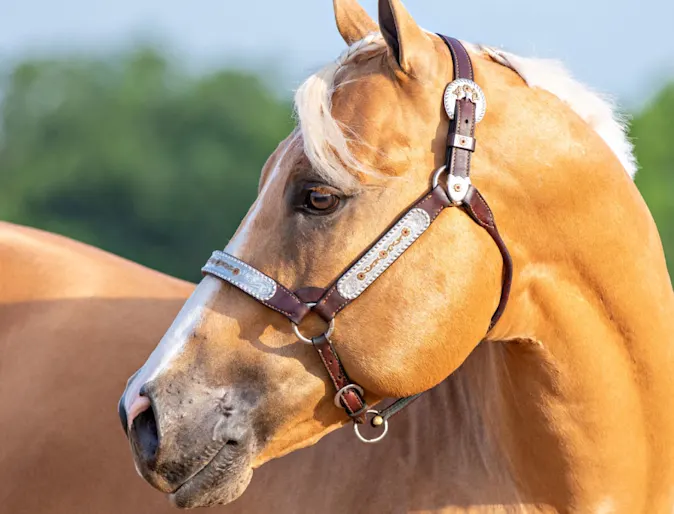
10 Tips for Weight Reduction in Overweight Horses
AAEP Publication Articles
As a horse owner, you play an important role in controlling your equine companion’s weight. Sound nutrition management, a regular exercise program and veterinary care are key to keeping your horse fit and healthy.
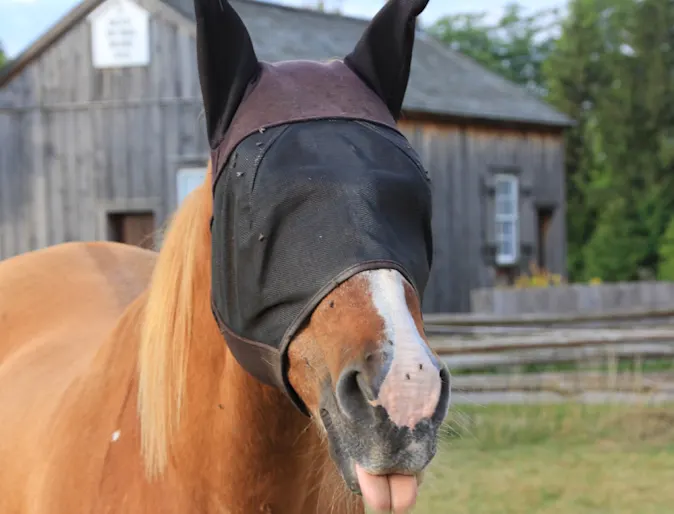
10 Tips for Caring for the Older Horse
AAEP Publication Articles
Because of advances in nutrition, management and health care, horses are living longer, more useful lives. It’s not uncommon to find horses and ponies living well into their 20s and 30s. While genetics play a role in determining life span, you too, can have an impact.

Be Prepared for an Equine Emergency
AAEP Publication Articles
If you own horses long enough, sooner or later you are likely to confront a medical emergency. You must know how to recognize serious problems and respond promptly, taking appropriate action while awaiting the arrival of your veterinarian.

Don't Skip the Purchase Exam
AAEP Publication Articles
Owning a horse can be a big investment in time, money and emotion. Unfortunately, horses seldom come with a money-back guarantee. That’s why it is so important to investigate the horse’s overall health and condition through a purchase exam conducted by an equine veterinarian.
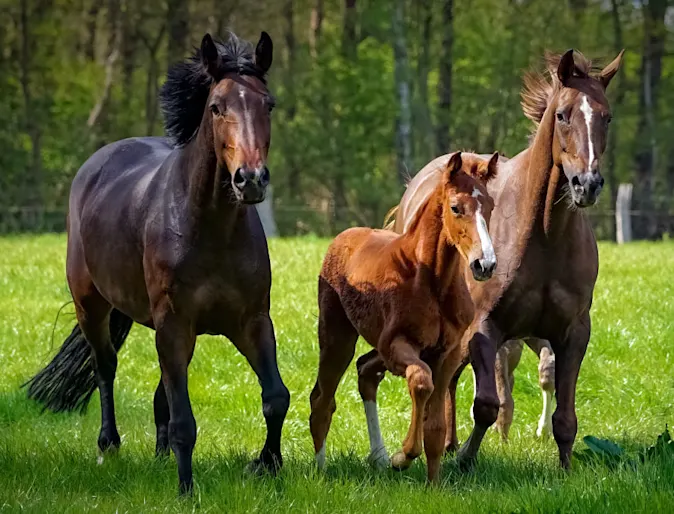
Help Your Foal Grow with Proper Nutrition
AAEP Publication Articles
A healthy foal will grow rapidly, gaining in height, weight and strength almost before your eyes. Feeding young horses is a balancing act, as the nutritional start a foal gets can have a profound affect on its health and soundness for the rest of its life.
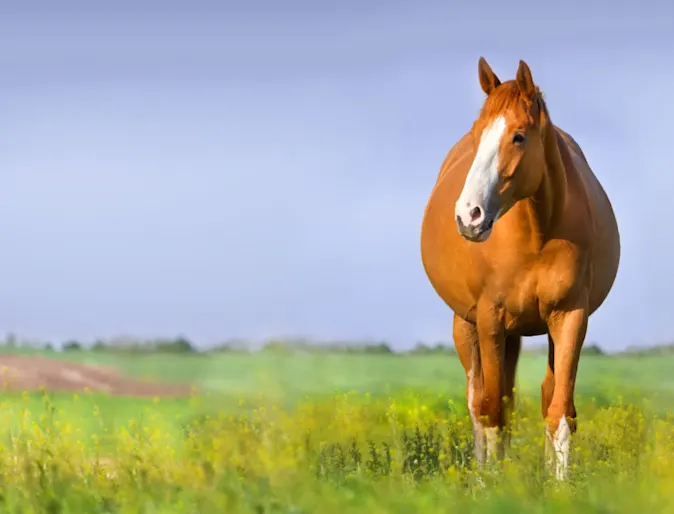
Help Your Mare Have a Safe Delivery
AAEP Publication Articles
If your mare has made it through 11 months of pregnancy, you’re almost home free. Labor and delivery, while momentous, are generally uneventful. In most cases, you will simply need to be a quiet observer – if, that is, you are lucky enough to witness the birth.
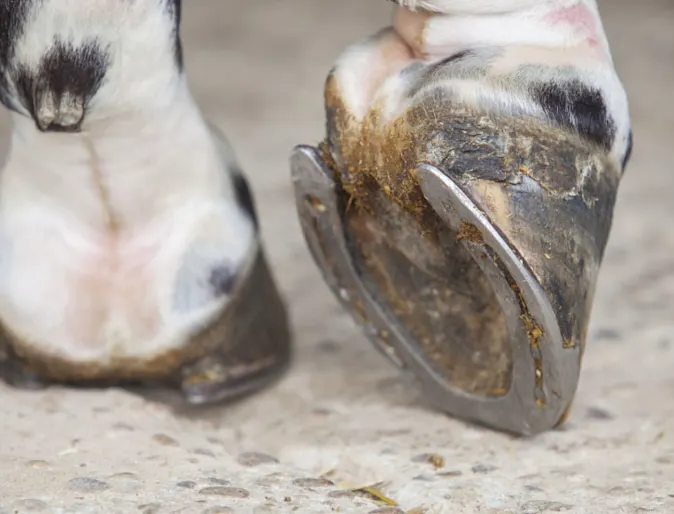
Learn to Recognize the Signs of Laminitis
AAEP Publication Articles
Every day veterinarians across the country see hundreds of cases of laminitis, a painful disease that affects the feet of horses. Laminitis results from the disruption of blood flow to the sensitive and insensitive laminae within the foot, which secure the coffin bone to the hoof wall.
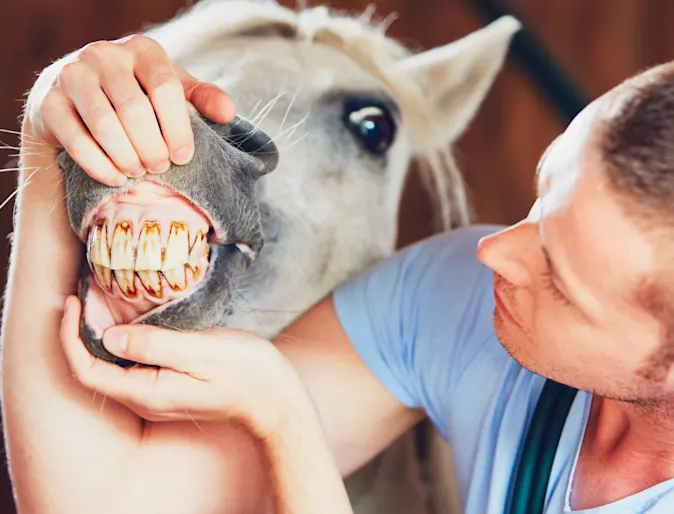
Learn to Recognize Your Horse's Dental Health Problems
AAEP Publication Articles
Horses with dental problems may show obvious signs, such as pain or irritation, or they may show no noticeable signs at all. This is because some horses simply adapt to their discomfort. For this reason, periodic dental examinations are essential to your horse’s health.
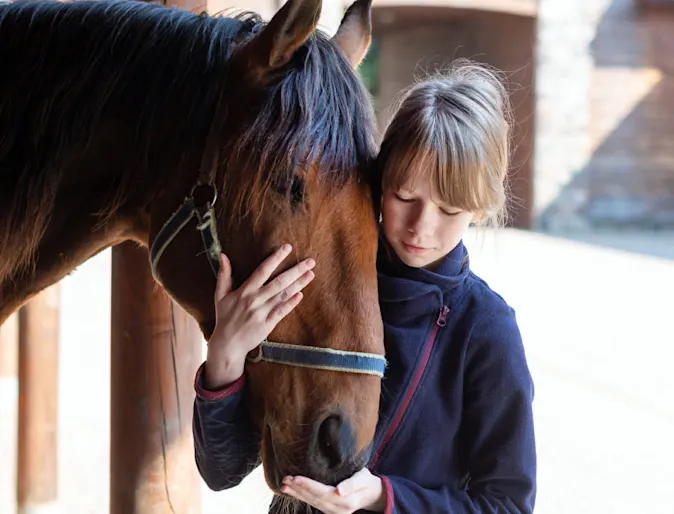
Learn to Recognize the Symptoms of EPM
AAEP Publication Articles
Equine Protozoal Myeloencephalitis (EPM) is a master of disguise. This serious disease, which attacks the horse’s central nervous system, can be difficult to diagnose because its signs often mimic other health problems in the horse and signs can range from mild to severe.

Protect Your Horse From EIA
AAEP Publication Articles
Equine Infectious Anemia (EIA) is a potentially fatal disease that threatens the world’s horse, donkey and mule populations. Learn how to protect your horse from EIA.
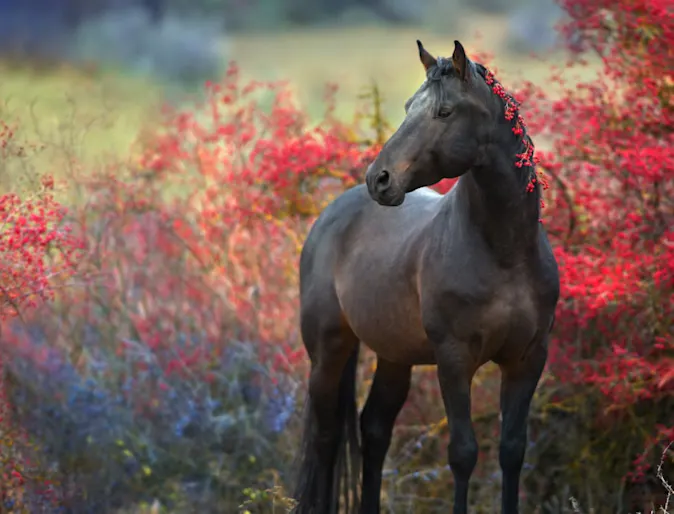
Understanding Horse Insurance Responsibilities
AAEP Publication Articles
While no one likes to think about the potential for tragedy, horses seem to be prone to illness, accidents and injury. Should some peril befall your horse, nothing may ease the emotional burden, but wise planning can help reduce the economic impact.
